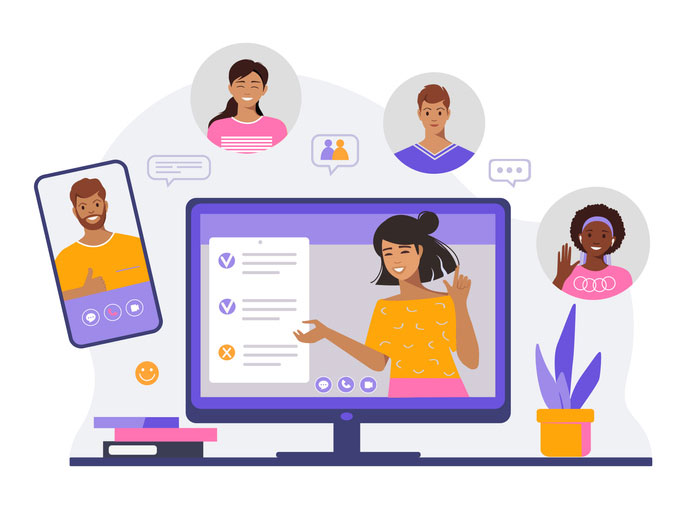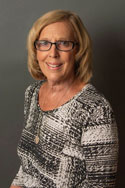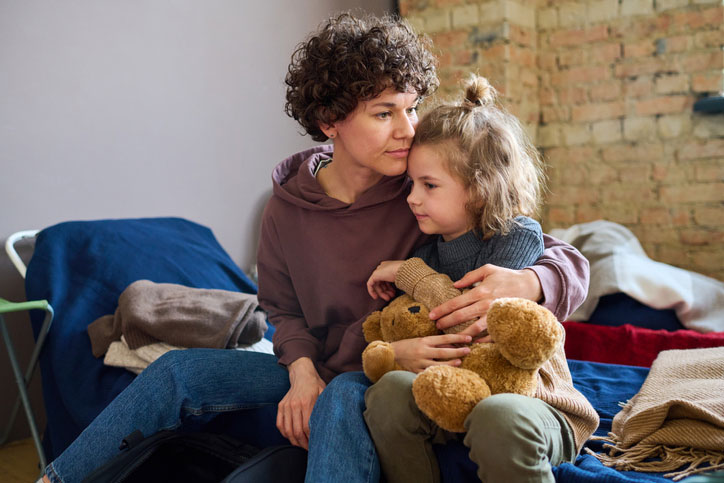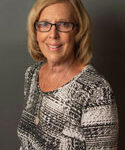
At its core, social work is about making a happy and healthy life accessible to everyone. Child welfare workers ensure that children receive the nurturing they deserve. Gerontology social workers help the nation’s elderly live out their golden years in comfort and safety. But if you want to enter the field yourself, how accessible is the education required to do so?
Returning to school can seem daunting, especially for working adults, parents, or individuals with busy schedules. The traditional model of social work education, requiring campus attendance, relocation, and rigid schedules, has historically excluded many passionate individuals from entering the profession. But that’s changing rapidly.
According to statistics from the Council on Social Work Education (CSWE), enrollment in online social work programs has increased by 47% between 2015 and 2020, with nearly a hundred accredited post-secondary institutions now offering entirely online Master of Social Work (MSW) programs. This shift isn’t just about convenience; it’s fundamentally transforming who can become a social worker and how the profession reflects the communities it serves.
Breaking Down Traditional Barriers to Social Work Education
The democratization of social work education through online programs addresses multiple systemic barriers that have historically limited access to the profession. At institutions like Campbellsville University’s Carver School of Social Work in Kentucky, faculty are witnessing this transformation firsthand.
Dr. Helen Mudd, one of the school’s tenured professors with over 20 years of frontline experience in Kentucky’s child welfare system, explains how the online MSW program format has burst the door to social work education wide open:
“Our classes are asynchronous. The working mother can do her homework after her children are in bed, after she gets off from work, while her children are in school, or on the weekend. She won’t have to hire a babysitter or rearrange her work schedule.”
This flexibility is particularly crucial for students from underrepresented backgrounds who often juggle multiple responsibilities. According to recent data from the National Association of Social Workers (NASW), nearly 60% of social work students work at least part-time while in school, with many supporting their families.

Dr. Helen Mudd has been on almost every side of social work imaginable. In addition to working in Kentucky’s child welfare system for 20 years, she also supervised freshly graduated students as they learned to navigate their new careers. After joining Campbellsville University’s Carver School of Social Work in 2005, she served as the program’s Director, Dean, and is now a tenured professor. Whether students take her classes online or in person, Dr. Mudd is dedicated to forming the next generation of skilled and compassionate social workers.
Virtual Classrooms Foster Unprecedented Diversity
Dr. Mudd has been in social work education for almost 20 years. But while social work has always drawn a varied cross-section of people, online programming has made her classes more diverse than ever. That fact alone is improving the student experience and better preparing future social workers for increasingly diverse practice settings:
“When you bring people from across the United States, and occasionally from across the world, into the classroom, it enhances the learning environment because students come to us from a wide range of different ethnicities and different geographical influences – all of that makes for a very rich environment.”
In social work, meeting colleagues from across the country isn’t just lovely, it’s vital to career preparation. Social workers increasingly serve diverse populations, and understanding different cultural contexts, regional challenges, and varied approaches to social issues enriches professional development.

The impact of this increased accessibility is measurable. The Council on Social Work Education (CSWE) recently found that about 22% of new social workers are Black or African American, 14% are Hispanic, and remarkably, 46% of social work students who graduated in 2019 were the first in their families to earn a college degree. Online programs have played a crucial role in achieving this diversity.
As these students learn how to address their own communities’ issues, they can share their experiences with peers who may have never encountered them. Rural students learn about urban challenges, suburban students understand the limitations of rural resources, and international students bring global perspectives to American social work practice.
“Online education allows us to make connections with individuals that would not have had the opportunity for a higher education in the past, who simply do not have the luxury of coming to the university to live in a dorm and to attend class face-to-face. In social work, we value those relationships.”
Technology and Innovation Maintain Rigorous Standards
Diverse, inclusive classrooms are essential, but if students aren’t learning and practicing concrete skills, are those classrooms truly inclusive? Or are they offering disadvantaged students a lesser education? This concern has been a legitimate criticism of some online programs. However, CSWE-accredited online programs must meet the same rigorous standards as their on-campus counterparts.
Dr. Mudd assures students that quality isn’t sacrificed for accessibility at accredited institutions:
“When we say online, that doesn’t mean easy. It means engaging with your profession and professionals. It’s not a correspondence course.”
Modern online social work programs employ innovative technologies to ensure students develop essential practice skills. For example, Campbellsville’s program includes advanced classes on child and family intervention that combine theoretical learning with practical application. Dr. Mudd and her colleagues have found creative ways to enable skill development in online environments:
“We use VoiceThread to do skill demonstrations so the other students and the professor can give that student feedback on their interviews. They can use that feedback to improve their interviewing skills.”
VoiceThread is an online communication software that allows anyone in a class to leave text, voice, and video comments on videos. Instead of receiving vague emails about areas for improvement, students get real-time, specific feedback. They can learn from each other’s mistakes and triumphs, creating a collaborative learning environment that rivals or even exceeds traditional classrooms.
| Traditional Classroom Method | Online Innovation | Inclusive Benefit |
|---|---|---|
| In-person role plays | Recorded practice sessions with peer feedback | Students can practice multiple times, review their performance, and learn at their own pace |
| Fixed office hours | Asynchronous discussion boards and flexible virtual meetings | Working students and those in different time zones can access support |
| Limited guest speakers | Virtual presentations from experts worldwide | Exposure to diverse perspectives and specializations |
| Group projects requiring physical meetings | Collaborative online platforms and shared documents | Students with mobility challenges or geographic constraints can fully participate |
With these creative uses of technology in play, rigor isn’t sacrificed for convenience, a fact Dr. Mudd takes pride in:
“At the end of the day, whether you’re face-to-face or online, the competencies that are expected of a social worker are exactly the same. We are a pathway to licensure program so the rigor of our online classes matches the rigor and outcomes of our face-to-face classes.”
Experienced Educators Reach More Students in Critical Times
When Dr. Mudd joined Campbellsville University in 2005, she brought over two decades of experience in Kentucky child welfare. This frontline perspective is invaluable for students who need to understand the realities of social work practice:
“When we think of child welfare, we think about child protection services, but it’s actually much broader. When I worked as a frontline social worker in child welfare, I worked with every agency that you can think of: hospitals, courts, police, schools, mental health agencies, child care agencies, the list goes on and on.”
Dr. Mudd’s experience demonstrates to her diverse pupils that social work needs professionals of all kinds. But her time on the frontline has also allowed her to develop an exceptionally nuanced understanding of social work education:
“Because I was on the frontline, training new students right out of college for so many years, I have a unique awareness of what universities should be providing. It informs what I do because I recognize every student that exits Carver School is going to go out into the world. We want them well trained. We want them to have an ethical decision-making framework. We want them to be good social workers who care about their clients and the families they serve.”
Online education enables experienced educators like Dr. Mudd to reach students who might otherwise have limited access to such expertise. Rural students, in particular, benefit from connecting with professors who have extensive experience in urban practice, while urban students gain insights into the challenges of rural social work.
Addressing the Social Work Workforce Crisis Through Inclusive Education
The expansion of inclusive online social work education couldn’t come at a more critical time. In Dr. Mudd’s own state of Kentucky, social workers are fleeing the profession in record numbers due to heavy caseloads and salary challenges, a pattern repeating nationwide. If current trends continue, the country is projected to face a shortage of 195,000 social workers by 2030.

Online programs are uniquely positioned to help address this crisis by:
- Enabling working professionals to transition into social work without leaving their current jobs
- Allowing students in underserved areas to pursue social work education without relocating
- Making education financially feasible for first-generation college students
- Creating pathways for diverse professionals to enter the field
- Supporting parents and caregivers who cannot attend traditional programs
Through their dedication to uncompromised standards and educational accessibility, online programs like Campbellsville’s are helping prevent a workforce crisis while simultaneously making the profession more representative of the communities it serves. Now, anyone anywhere can learn from tenured frontline veterans at both the master’s and bachelor’s levels.
The Future of Inclusive Social Work Education
As online social work education continues to evolve, its impact on inclusivity and accessibility extends beyond individual students. The profession itself is being transformed by the diverse perspectives, experiences, and approaches that online students bring to their practice.
Whether your career plans include becoming a frontline social worker, a clinical practitioner, or an advocate for systemic change, online education ensures that passion and commitment, not circumstances, determine who can answer the call to serve. Dr. Mudd and other pioneering educators are ensuring that quality education reaches every aspiring social worker:
“In social work, we create partnerships with our clients to succeed in education. In social work education, we create partnerships with our students to succeed. The concepts are the same. We recognize that the relationship is what makes the difference.”
With online social work education, those transformative relationships can be forged anywhere, by anyone, at any time. The result is a more inclusive, diverse, and representative social work workforce better equipped to serve all communities.
For more information about finding the right social work program for your needs, explore our guides to CSWE accreditation, financial aid options, and state-by-state program listings.















